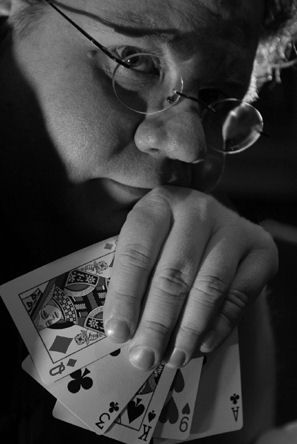The first hint of wrong was an article in the Chicago Tribune on September 3, 1946. The headline, “REVEAL ARMY TEACHES SOAK THE RICH IDEAS,” chilled the cold war conservatives to their wallets. The article follows: “An economic philosophy, embracing a cradle to the grave security financed largely by oppressive taxation of large estates and personal incomes, is being taught to men and women of the military services wherever the United States Armed Forces institute has set up a course in economics.”
The New York Times added, “ARMY COURSE SAID TO AID COMMUNISM.” Chicagoan and president of the National Small Businessmen’s Association, De Witt Emery accused the army of teaching Communism. He further called for an investigation of the “spineless, appeasing State Department,” and that it be “purged” of “radicals, Communists, and fellow travelers.”
The book, Economics: Principles and Problems, published in 1937 was the work of Paul F. Gemmill and Ralph H. Blodgett. Gemmill, a professor at the University of Pennsylvania, Blodgett a professor at the University of Illinois. Gemmill was a magician.
“BARE RED LINKS OF MAGICIAN IN ARMY TEXT QUIZ”
Chicago Tribune, October 6, 1946
“Paul F. Gemmill, magician and economist...is listed by the house committee on un-American activities as a defender of communism and sponsor of communist front organizations.” The article then lists several petitions that Prof. Gemmill signed including, a petition sponsored by the American Committee for Democracy and Intellectual Freedom demanding that the house committee on un-American activities be discontinued. In a move worthy of a current administration, the house committee described the former as a communist front operating among college teachers and professors.
Paul F. Gemmill was born May 30, 1889. Inspired by the great magicians of the day, he took up magic at a young age performing professionally by the age of seventeen. In 1909, Eugene Laurant hired Paul as an assistant. That was not Paul’s first choice; he wanted to work with another magician, his real idol, Karl Germain. Germain, Paul felt, was the best of all the magicians. A year later, Paul got his wish. He assisted Germain for four years and developed a life-long friendship with the master.
He toured as “James,” the assistant and as “star” under several names, Karl Germain, Paul Germain, and Paul Fleming. Germain lent him props and permitted him to use the Germain promotional materials, with slight alterations. Paul split time between performing and school. He was as good of a student as he was a magician and earned the respect of Germain. Karl, himself, being a hyphenate, magician-lawyer.
The textbook in question happened to be a standard text used in over 100 colleges and universities such as Notre Dame, Illinois, Kansas, Maine, Missouri, Cornell, Dartmouth, Stanford, Duke, and Vanderbilt. The criticisms were based on that they (Gemmill and Blodgett) advocated progressive income and inheritance taxation. Hardly a novel idea. Yet, it was banned by the army.
In those times, after the war, many people in many professions were caught by the red paranoia. Education and entertainment made for easy targets. Few survived unscarred. On any side.
Paul Gemmill continued, writing several other books. He died on December 30, 1976. His brush with “infamy” hardly spoken of in the magic community. He was a great magician.
That is all we needed to know.
Tuesday, November 21, 2006
Subscribe to:
Post Comments (Atom)

No comments:
Post a Comment